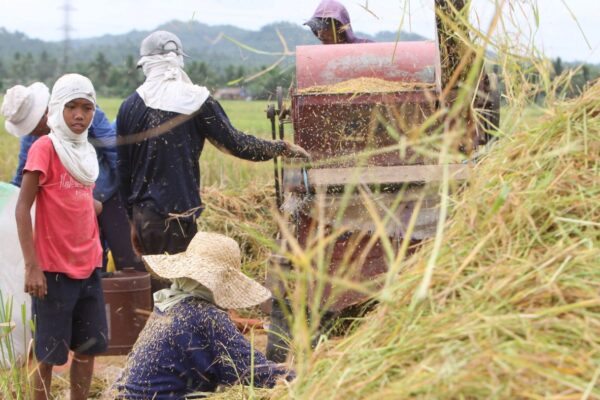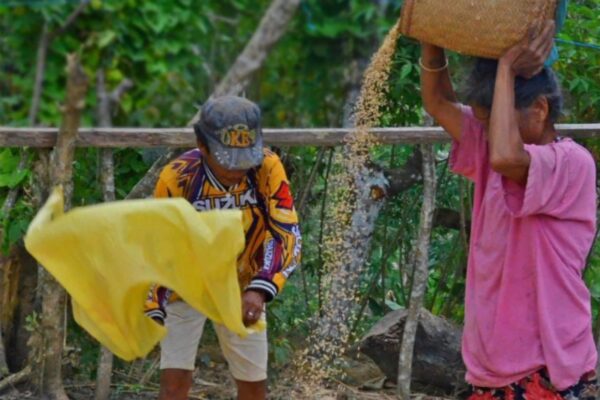IIRR’s social protection programs are designed to help mitigate and prevent social and economic difficulties by empowering the communities with which we work. In the Philippines, many economically poor families own small farms which are the main source of their food and nutrition. However, there is often a gap in knowledge and a lack of resources to diversify crops. Diversifying crops is one method used to achieve social protection because crop diversification helps to achieve and maintain food security and financial independence amidst climate change.
Therefore, IIRR has partnered with the Guinayangan government, a local municipality in the Philippines, to economically empower local rural people. This social protection program positively impacted the food security of 60 family farming households by introducing small livestock to address food insecurity and to diversify the diet.
Additionally, IIRR and the local Guinayangan government introduced an agroforestry project with the support of CCAFS and Forest Foundation Philippines. This project helped introduce 22 new varieties of vegetables to the community. Through education and starter kits, IIRR and their partners encouraged farmers to learn about the importance of biodiversity while farming. When used correctly, biodiversity enriches the soil, reduces soil erosion, and maintains soil moisture. In turn, this provides fertile lands for farmers to continue growing and selling their products.
For example, through IIRR’s projects, the increase in vegetable production has allowed one family to sell the excess production, making an extra PHP 4,000 a week. This has allowed this family to pay off their debts and send their children to school.
What’s more, 59 local families received native pigs, chicken, and ducks in a pass-on scheme. The pass-on scheme helped multiply the number of livestock and encouraged community relations. Due to the introduction of livestock, 30 farmers have earned PHP 4,000 – PHP 28,000 from selling piglets, ducks, and goats.





